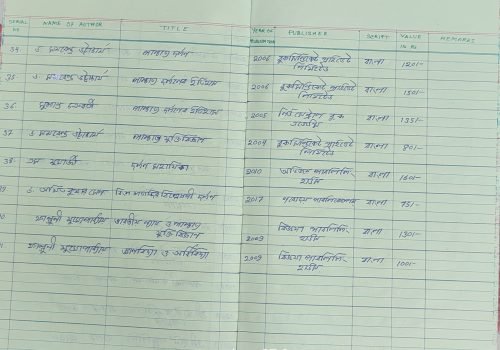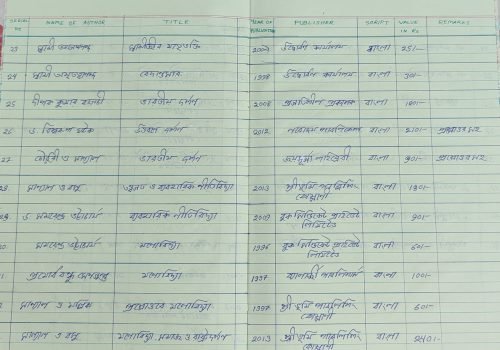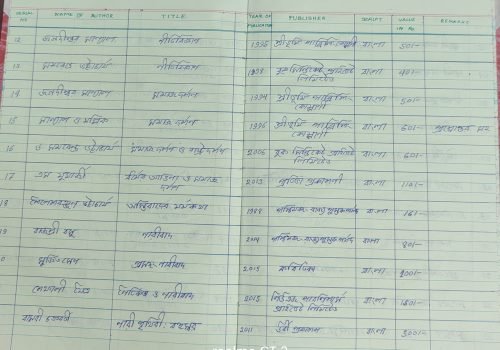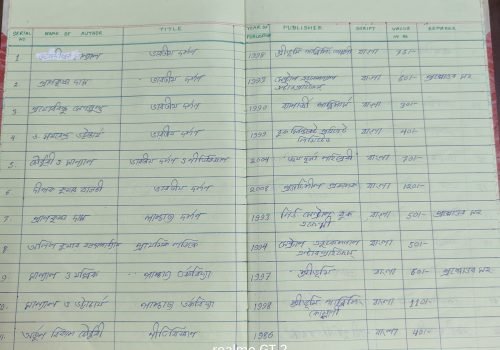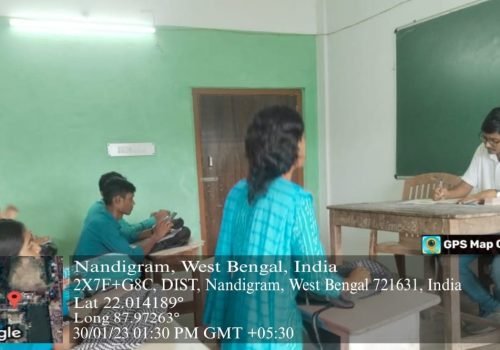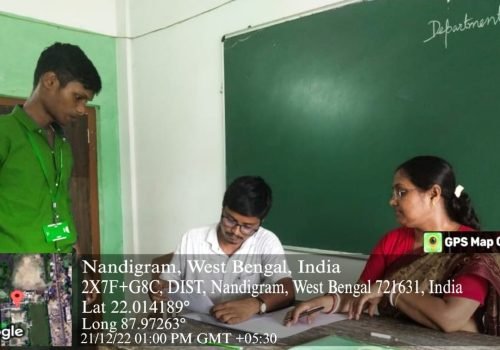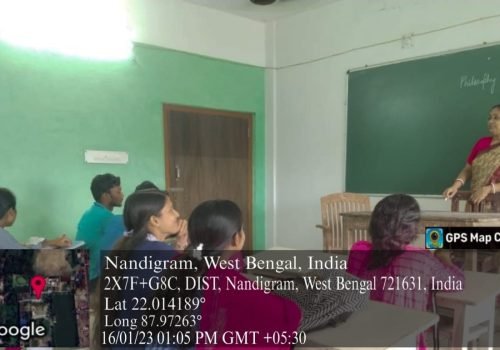Philosophy
Our Departments
Announcements
Notice Inviting Sealed Rate Quotations For Empty Colour Containers (20l & 10l)
UG 1st Semester Registration Schedule (Session 2025–2026)
Important Notice Regarding Registration Certificate Submission
UG admission Verification notice: Stand alone Mode 1
About The Department
Objectives of the Department
- Provide excellent, integrated education that fosters a lifelong learning approach, enabling students to navigate and understand the complexities of the 21st century.
- Create a conducive environment for the application of knowledge and culture, challenging students to pursue intellectual, social, and personal growth.
- Guide students in acquiring knowledge and emphasizing critical thinking skills, encouraging reflection on ideas and values.
- Offer opportunities for students to apply their skills through historically oriented and case-based learning techniques.
- Strengthen commitment to student success and broaden recognition for excellence in teaching, community service, and philosophical inquiry.
Vision
- Develop a deep understanding of historical and contemporary philosophical inquiry.
- Think critically and independently about complex philosophical topics and problems.
- Clearly articulate and defend their own philosophical perspectives.
- Analyse and evaluate philosophical arguments related to specific topics or problems.
Mission
- Impart knowledge of influential philosophical thinkers from the past, including Western figures like Socrates, Plato, and Aristotle, as well as Indian luminaries like Buddha, Mahavira, Sankaracharyya, and Sri Chaitanya.
- Familiarize students with the evolution of philosophical thought up to contemporary times, encompassing both Indian and Western perspectives.
- Instill moral values and awareness of historical and current socio-political and religious contexts.
- Broaden students’ perspectives, enabling them to approach the world with a rational and analytical mindset.
Infrastructure Facilities
- Library facility (151 books).
- Computer with internet and printing facility.
- Separate space for the department.
- Table, Chairs and Almirah.
Opportunities:
- The full time post is likely to be filled within a reasonable time.
- Good teaching network
- Study is done in a very friendly atmosphere.
- Availability of tutorial classes.
Facilities Provided to the Students
- Books reading facilities from the departmental library.
- Internet facility is provided from the departmental computer.
- Provision of tutorial classes for the slow learners.
- Providing study notes to the students.
- Different programmes other than regular studies like wall magazine, debate, culturing current affairs etc.
Future plan
- To upgrade the department in honours course.
- To organize the department and seminar by students.
- To organize UGC sponsored seminars.
- To publish the departmental journal.
- To enrich the faculties by more MRP.
Challenges
- Making student ready for higher education and other examinations.
- Upliftment of the backward students.
- To prepare very weak and non motivated (as their subject choice is secondary) students towards studying the subject so that they may learn besides mere passing out of degree examinations.
- To upgrade the standard of students of ug courses within a limited to upgrade the standard of students of ug courses with the name limited interactural arrangement along with acute shortage of full time faculty in the department.
Department Rules
- Students of the Political Science Department have to participate in the various events such as seminar, workshop, debates, wall magazine publication etc.
- As per the University norm 75% attendance in class is mandatory for appearing in the final university examination.
- Students must return their borrowed books etc to the Departmental Library before collecting their admit cards from the office for final university exam.
- Students should maintain a healthy academic atmosphere and should not involve in ragging or harassing anybody.
- Internal Examination of the Political Science is mandatory.
- Students must inform the departmental head in written in case of continuous absence for more than seven consecutive days in the class.
- Students must use the dustbins available in the campus.
Departmental Strength:
- The department has experienced young & energetic Teaching staffs.
- The department enjoys nearly absolute autonomy from the authority in the teaching learning process.
- The spirit of determination, dedication and discipline persists in the instinct of the faculties.
- Organising tutorial classes, special classes for week students.
- A very good coordination exists among the faculty members.
- The department is proud of its healthy and traditional student-teacher relationships.
1. Cultural Appreciation
Bengali literature offers a profound insight into the rich cultural heritage, traditions, and ethos of the Bengali-speaking people. By studying Bengali literature, students gain a deeper appreciation for the diverse cultural nuances embedded within the language, fostering cross-cultural understanding and respect.
2. Language Proficiency
Bengali literature serves as a linguistic resource for students to enhance their proficiency in the Bengali language. Through exposure to a wide array of literary genres, styles, and linguistic expressions, students develop a nuanced understanding of Bengali grammar, vocabulary, and syntax, thereby strengthening their language skills.
3. Aesthetic Appreciation
Exposure to the literary masterpieces of Bengali literature cultivates students' aesthetic sensibilities and fosters an appreciation for artistic expression. Through the exploration of poetic imagery, narrative techniques, and rhetorical devices, students develop a discerning eye for beauty, creativity, and artistic innovation.
4. Literary Analysis & Interpretation
Studying Bengali literature hones students' analytical and critical thinking abilities as they dissect and interpret complex literary texts. By analyzing themes, characters, motifs, and literary devices, students learn to discern deeper meanings, contextualize historical and social influences, and appreciate the intricacies of narrative structures.
5. Cultural & Historical Context
Bengali literature provides a window into the socio-political, historical, and cultural milieu of Bengal across different epochs. Through the study of literary works spanning various periods, students gain insights into the evolution of Bengali society, its triumphs, challenges, and transformations, thus fostering a holistic understanding of regional history and identity.
6. Identity Formation
Bengali literature plays a pivotal role in shaping individual and collective identities, offering diverse narratives and perspectives that resonate with readers' personal experiences and cultural backgrounds. By engaging with literary works that reflect themes of identity, belonging, and self-discovery, students embark on a journey of introspection and self-awareness, enriching their sense of cultural identity and belongingness.
Academic calendar
Faculty Members
Associate Professor || Dept. of Philosophy
Assistant Professor || Dept. of Philosophy





